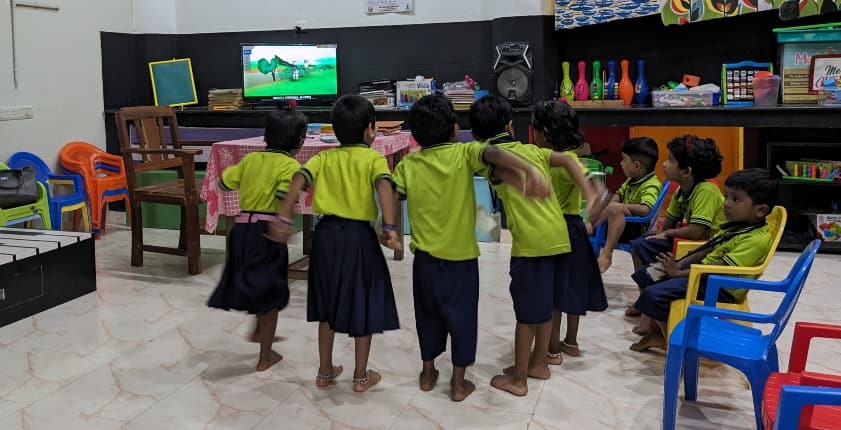‘There is little evidence on digital technology’s value in education’: UNESCO Report
Atul Krishna | July 27, 2023 | 12:27 PM IST | 3 mins read
The UNESCO GEM Report notes that much of the ‘evidence’ for edtech is controlled by digital technology providers and isn’t impartial.

NEW DELHI: A report by the United Nations Educational, Scientific and Cultural Organization (UNESCO) said that there is “not enough evidence” on digital technology’s added value in education. Moreover, the report said that excessive use of technology, such as smartphones, negatively affects student performance.
The Global Education Monitoring Report |Technology in Education: A tool on whose terms?, noted that much of the evidence for digital technology in education is controlled by digital technology providers making it difficult to get impartial data.
Citing these causes, the report endorses banning smartphones in classrooms. It also calls for better regulation of digital technology and legislation that ensures privacy of students and teachers. The UNESCO GEM report also notes that governments are funding education technology without considering long-term costs of maintaining it and staying updated while “basic education needs remain unmet”.
Smartphones harm learning
The report said that the use of technology in classrooms can disrupt learning. It found that smartphones, especially, distract students and have a negative impact on learning.
“Large-scale international assessment data, such as that provided by the Programme for International Student Assessment (PISA), suggest a negative link between excessive ICT[information communication technology] use and student performance. Mere proximity to a mobile device was found to distract students and to have a negative impact on learning in 14 countries, yet less than one in four have banned smartphone use in schools,” the report said.
The report warned governments that basic literacy of the students “should not be overlooked” while trying to impart digital skills as it is critical for digital application. Students with better reading skills are far less likely to be duped by phishing emails, it said.
The report also cites evidence showing that learning benefits disappear if technology is used in excess or in the absence of a qualified teacher.
Moreover, teachers need appropriate training to handle digital products, yet only half of countries currently have standards for developing their ICT skills, the report said. It also said that very few teacher training programmes cover cybersecurity even though 5% of ransomware attacks target education.
Edtech: No impartial evidence
The report said that the advantages and disadvantages of digital technology in classrooms are hard to quantify as most of the evidence for the same is controlled by the digital technology providers.
“Teaching and learning can benefit from education technology. But the fast pace of technological change and control of evidence by technology providers makes it difficult to know which technologies work best, in what context and under what conditions,” the report said.
It also noted that the operation and maintenance of technology infrastructure, including electricity, computers and internet connectivity, is expensive and that there is “little reliable and consistent information on these costs”.
It said that many countries are ignoring long-term costs while spending on technology purchases which could be better used to meet basic education needs.
Also Read| Pariksha Pe Charcha 2022: Educationists counter PM Modi’s stand on online classes
“Many countries ignore the long-term costs of technology purchases and the EdTech market is expanding while basic education needs remain unmet. The cost of moving to basic digital learning in low-income countries and connecting all schools to the internet in lower-middle-income countries would add 50% to their current financing gap for achieving national SDG [Sustainable Development Goals] 4 targets,” the report said.
The report calls for establishing bodies to evaluate education technology and carry out “independent and impartial research” on these. It said that digital technology should be leveraged to yield sustainable benefits and “not be led by narrow economic concerns and vested interests”.
It also cites an analysis that found that 89% of 163 education technology products could survey children. Further, 39 of 42 governments providing online education during the pandemic fostered uses that “risked or infringed” on children’s rights.
The report called for establishing a curriculum framework that uses the potential of technology without being “attached to any specific technology”. It also suggested that governments should bring in legislation to ensure privacy and data protection of students and teachers to “guard against commercial advertising”.
In India, the Advertising Standards Council of India (ASCI) has released updated guidelines that requires edtech platforms to substantiate claims made in their advertisements. The platforms are also directed to be mindful of students’ wellbeing and mental health while advertising.
Follow us for the latest education news on colleges and universities, admission, courses, exams, research, education policies, study abroad and more..
To get in touch, write to us at news@careers360.com.